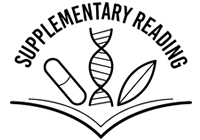Garcinia
Also known as: Brindle Berry
Safety Rating:
|
LIKELY HARMFUL
|
|
NOT ENOUGH INFO
|
|
POSSIBLY UNSAFE
|
|
POSSIBLY SAFE
|
|
LIKELY SAFE
|
(For explanations of what these safety ratings mean, click here)
Potential Side effects:
Bleeding
Diarrhea
Headache
Hepatotoxicity (Liver damage)
Mania in patients with bipolar disorder
Nausea
Stomach upset
Overview
What is it? Garcinia is a tree found mostly in evergreen forests in South and Southeast Asia, and is used in cooking in that region. The fruit rind contains a chemical called hydroxycitric acid (HCA).
Why is it used? Garcinia is commonly found in weight loss and exercise performance products.
What’s the harm?
- Garcinia-containing products have been directly linked to many cases of hepatotoxicity (liver damage), and at least 3 of those people required liver transplants.
- The most well-documented cases of Garcinia-linked hepatotoxicity were in patients taking Hydroxycut before 2009. The Garcinia and green tea extract in Hydroxycut were the suspected cause of liver damage, and Hydroxycut was reformulated later in 2009 to remove both ingredients.
- There is little information about what dosing is dangerous, making it difficult to determine if a supplement is dangerous. Because of that uncertainty and the recorded cases of liver damage, products containing Garcinia are considered POSSIBLY UNSAFE for most healthy people. Due to the lack of safety information, the recommendation is to avoid taking while pregnant or breast-feeding.
Interactions with health conditions:
Alcoholism: Heavy regular consumption of alcohol causes liver damage over time. Adding Garcinia may speed up the development of liver damage.
Liver problems: Garcinia can cause liver damage. For people with liver problems like cirrhosis or hepatitis, this can be especially dangerous.
Mental Health: May worsen existing mental health symptoms or cause new ones. Garcinia may increase the risk of mania in people with bipolar disorder, working against their medications.
Drug Interactions:
Hepatotoxic (may cause liver damage): Taking Garcinia with medications linked to liver damage could cause or worsen the damage. Examples of hepatotoxic drugs include:
- Acetaminophen (Tylenol)
- Amiodarone (Cordarone)
- Isoniazid (INH)
- Methotrexate (Theumatrex)
- Click here for a complete list of drugs that can cause liver damage.
Mental Health medications:
- Bipolar Disorder: Could worsen or trigger mania in people with bipolar disorder, effectively making their medications less effective and requiring changes to their medications. Click here for a list of medications used to treat Bipolar Disorder, and click here for an overview of those medications by type.
- Depression/Anxiety: Interactions with some depression or anxiety medications could lead to serious reactions like Serotonin Syndrome. Examples include:
- Sertraline (Zoloft)
- Fluoxetine (Prozac)
- Escitalopram (Lexapro)
- Venlafaxine (Effexor)
- Amitriptyline (Elavil)
Interactions with herbs/supplements:
Hepatotoxic (damaging to the liver): Taking Garcinia with other products linked to liver damage could cause or worsen the damage. Examples include:
- Borage leaf
- Comfrey
- DHEA
- Germander
- Pennyroyal oil
- Red yeast
Interactions with foods: None Known
Interactions with lab tests:
Liver function tests: Garcinia has been reported to cause increases in the level of enzymes that measure liver damage.
References:
- *Natural Medicines. (2019, January 29). Garcinia [Monograph]. Natural Standard Professional Monograph. Retrieved from: https://naturalmedicines.therapeuticresearch.com/databases/food,-herbs-supplements/professional.aspx?productid=818
- *Corey R, Werner KT, Singer A, Moss A, Smith M, Noelting J, Rakela J. Acute liver failure associated with Garcinia cambogia use. Ann Hepatol. 2016 Jan-Feb;15(1):123-6. Retrieved from: http://www.medigraphic.com/cgi-bin/new/resumenI.cgi?IDARTICULO=63816
- Lunsford KE, Bodzin AS, Reino DC, Wang HL, Busuttil RW. Dangerous dietary supplements: Garcinia cambogia -associated hepatic failure requiring transplantation. World J Gastroenterol. 2016;22(45):10071-10076. Retrieved from: https://www.ncbi.nlm.nih.gov/pmc/articles/PMC5143754/
- Huizen, J. (2019). "Bipolar medications: Everything you need to know." Medical News Today. Retrieved: https://www.medicalnewstoday.com/articles/324388.php
- Kaswala, D. H., Shah, S., Patel, N., Raisoni, S., & Swaminathan, S. (2014). Case Report: Hydroxycut‑induced Liver Toxicity. Annals of medical and health sciences research, 4(1), 143-145. Retrieved: https://www.ncbi.nlm.nih.gov/pmc/articles/PMC3952288/
*=Requires PAID or institutional subscription to access
